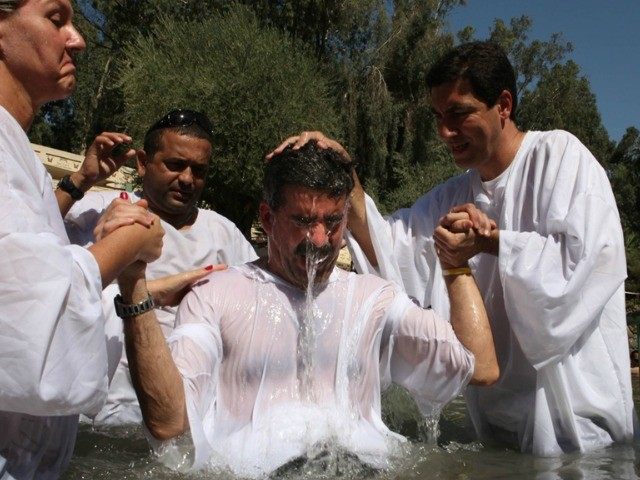Thousands of migrants are being baptised into the Christian faith upon arrival in Europe but the German government is sceptical, suspecting many are changing faith to bolster their chances of getting asylum.
Immigrants from countries where being a practising Christian can be a deadly conviction such as Iran, Afghanistan and Syria are converting to the religion in great numbers in Europe, having lived as Muslims before arriving in the continent. One church featured in a report by German state broadcaster ARD expects to baptise 600 people this year.
Another baptised 185 newcomers in 2015. Many communities were experiencing influxes of migrant worshippers, said the report.
Naturally, the reasons for migrants turning to the Christian church are diverse. One prominent explanation is a rejection of Islam, which has been credited as a driving force behind the conflicts many asylum seekers claim to be escaping. ARD reports the remarks of one priest, Pastor Albert Babayan who said “Many say they are disappointed by Islam”.
One freshly-minted Iranian Christian said he “lived in fear” in his home country, but upon meeting two Iranian Christians in Germany he discovered a “new community”. After his baptism in a local swimming pool, done by an evangelical preacher for him and 70 other candidates, the Iranian told the broadcaster “today my new life begins. Now I belong to Jesus”.
Despite the earnest conviction of this man and others, the German government suspects many may be cynically affecting fake conversions for the sake of achieving asylum status. Members of persecuted minorities — such as homosexuals or Christians — are more likely to receive a positive reception in many European countries.
Those making decisions for the German government on whether to accept applications are now having to determine whether the conversions are honest or not.
The churches themselves are taking some of that burden on themselves by engaging in checks on the the candidates before their baptisms. One church required 30 German church goers to testify an applicant was already an active member of the community. Others asked why the candidate wanted to be religious in the first place, and others asked questions requiring a reasonable level of knowledge of the faith, such as “How many days between Easter and Pentecost?”.

COMMENTS
Please let us know if you're having issues with commenting.